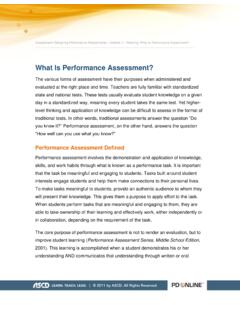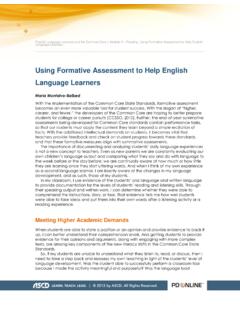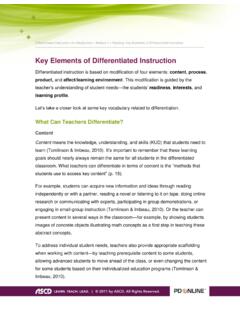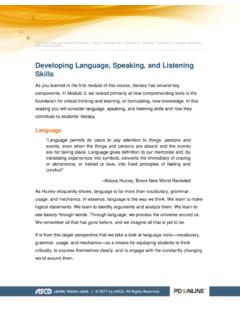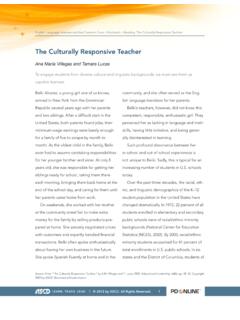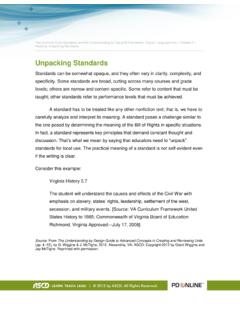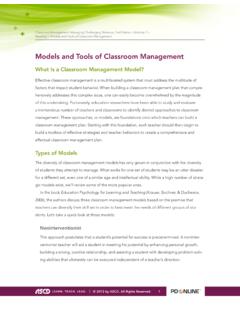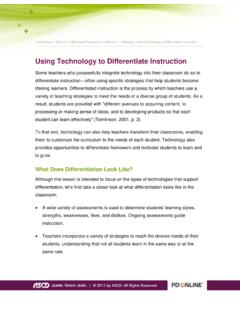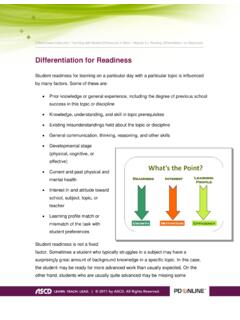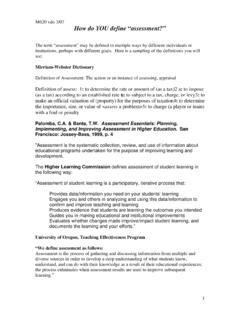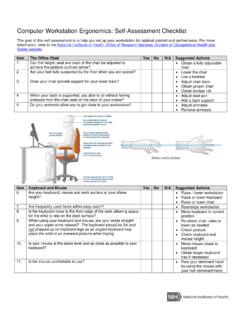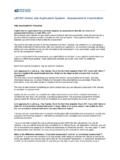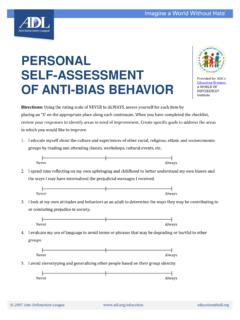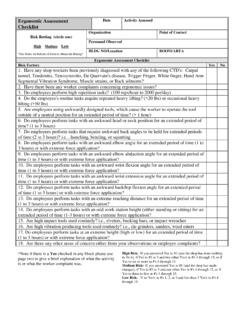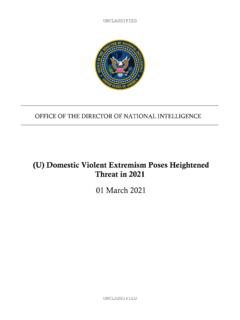Transcription of Types of Assessment - ASCD
1 Differentiated Instruction: Using Ongoing Assessment to Inform Instruction > Module 1 > Reading: Types of Assessment _____ Types of Assessment In general, the purpose of Assessment is to determine as accurately as possible what students should know, understand, and be able to do. In the differentiated classroom, Assessment must provide clear information on student progress with regard to classroom content, processes, and products. This information helps teachers make wise, informed decisions about the needs of their students and the direction their instruction should take.
2 There are two main Types of Assessment , each occurring at different points in the learning process: formative, which occurs both before and during the learning process, and summative, which occurs at the end of key segments in a learning cycle or the end of the learning process. Differentiated Instruction: Using Ongoing Assessment to Inform Instruction > Module 1 > Reading: Types of Assessment Page | 2 _____ "The is to make sure we use the data to inform instruction and not just to fill the grade book. It's also really important that the quizzes and tests absolutely measure what it is the students should know, understand, and be able to do.
3 " Carol Ann Tomlinson These Types of assessments also have different purposes and uses. Formative Assessment According to Popham (2011), formative Assessment is a process that "involves the gathering and analysis of Assessment -elicited evidence for the purpose of determining when and how to adjust instructional activities or learning tactics in order to achieve learning goals" (p. 14). This purpose is achieved through two Types of formative Assessment pre- Assessment and ongoing Assessment . Pre- Assessment is a type of formative Assessment that occurs before a unit of study begins.
4 Whether formal or informal, pre-assessments are never graded. They are purely diagnostic in nature. When pre-assessing for readiness, for example, teachers attempt to find out What students already know, understanding, and are able to do regarding the upcoming learning. What prerequisite learning, if any, may be missing or misunderstood. Teachers in a differentiated classroom also pre-assess for interest and learning profile, so they can design activities that are motivating for students and that match student learning preferences, as appropriate.
5 Ongoing Assessment is what most people think of when they think of formative Assessment . Ongoing Assessment occurs at various intervals throughout the Differentiated Instruction: Using Ongoing Assessment to Inform Instruction > Module 1 > Reading: Types of Assessment Page | 3 _____ learning process. Its purpose is to find out the degree to which students are "with" the teacher in terms of meeting learning goals, so classroom content, process, and products can be adjusted to better facilitate student growth. Ongoing Assessment for interest and learning profile is also possible, if that information has not previously been collected or if the teacher has a new idea for incorporating these data into unit activities.
6 Formative assessments, which may be formal or informal, include homework, quizzes, exit cards, journal prompts, and classroom discussions. Experts in formative Assessment (for example, see Popham, 2011) suggest that formative assessments should rarely be graded because grades imply a judgment of student competence that may not be appropriate until the end of the learning cycle or until key points in a learning sequence are reached. Summative Assessment Summative Assessment occurs at the end of the learning process and is typically graded. Some examples of summative assessments include tests, projects, demonstrations, presentations, and performance tasks.
7 The purpose of summative Assessment is to provide evidence of the degree to which a student has mastered the knowledge, understandings, and skills of the unit. Experts, such as Wiggins and McTighe (2011), recommend that summative assessments should be planned before instruction. Students are then taught in structured segments to practice and master the skills, knowledge, and understandings that will lead to success on the summative Assessment . In addition, summative assessments can be differentiated, as long as the differentiation does not prevent teachers from accurately collecting evidence showing how well students met the targeted learning goals.
8 Differentiated Instruction: Using Ongoing Assessment to Inform Instruction > Module 1 > Reading: Types of Assessment Page | 4 _____ We will learn about various formats that formative and summative assessments can take, as well as how to plan and differentiate assessments, throughout the remaining modules of this course.
